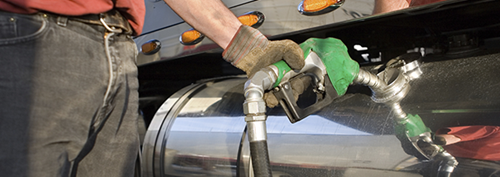
As usual, when I’m cruising along the wide-open stretches of interstate, I begin to ponder about all sorts of things. Fuel economy, taxes, maintenance, etc. I’m constantly trying to improve my services for my customers and to increase my bottom line. Of course, you cannot forget about safety, without it the rest is pointless.
Fuel economy is a big factor- it’s one of an owner-operators biggest expenses. My new Western Star 5700xe is proving itself to be one efficient machine. While I don’t usually drive at the speed limit, I am happy to know that I can if conditions warrant. As the driver of this machine, I can use my judgment to decide the safest speed to operate at while also considering fuel mileage. I get passed a lot throughout the days and nights on the road, but I still get where I am going on time and safely. With the ability to increase the speed up to or near the speed limit, I can adjust my schedule to meet customer’s needs. Without being limited, I can also afford to slow down in construction zones and city limits without the fear of losing time and not reaching my destination in a timely manner. All too often I see trucks speeding in construction zones. The trucks are usually governed or speed limited and must maintain the truck’s normal lower speed limit, but are now speeding in work zones to make up time. I’m glad I have the ability to make the safe decision for myself.
Taxes can be taxing to the brain. Considering where to get the best price on fuel takes a lot more than checking pump prices. Watching IFTA (International Fuel Tax Agreement) rates helps determine where to get the best cost per gallon when crossing several states. Considering fuel purchases while trip planning is a daily chore if you want to keep more of that hard-earned money in your pocket. Of course, when it comes to fuel prices, thoughts go back to fuel economy, as IFTA taxes owed are related to the trucks MPG.
One last common thought while driving the wide-open interstates of the western states is maintenance. As I get passed by a truck after truck going much much faster than I, how much more does it cost to drive 75 mph for long periods of time? I usually have excellent tire wear, great fuel economy, and less stress driving my slower speeds. Does the time saved make up for the added cost of running faster? Sometimes I will increase my speed to (or near to) the speed limit to make a deadline so I can get to another customer sooner, but never speeding. It costs a little more in fuel and wear on my truck to get there, but I make up for it by getting to another customer. I don’t do it constantly, but it is handy to be able to safely meet the customer’s needs and increase my bottom line.